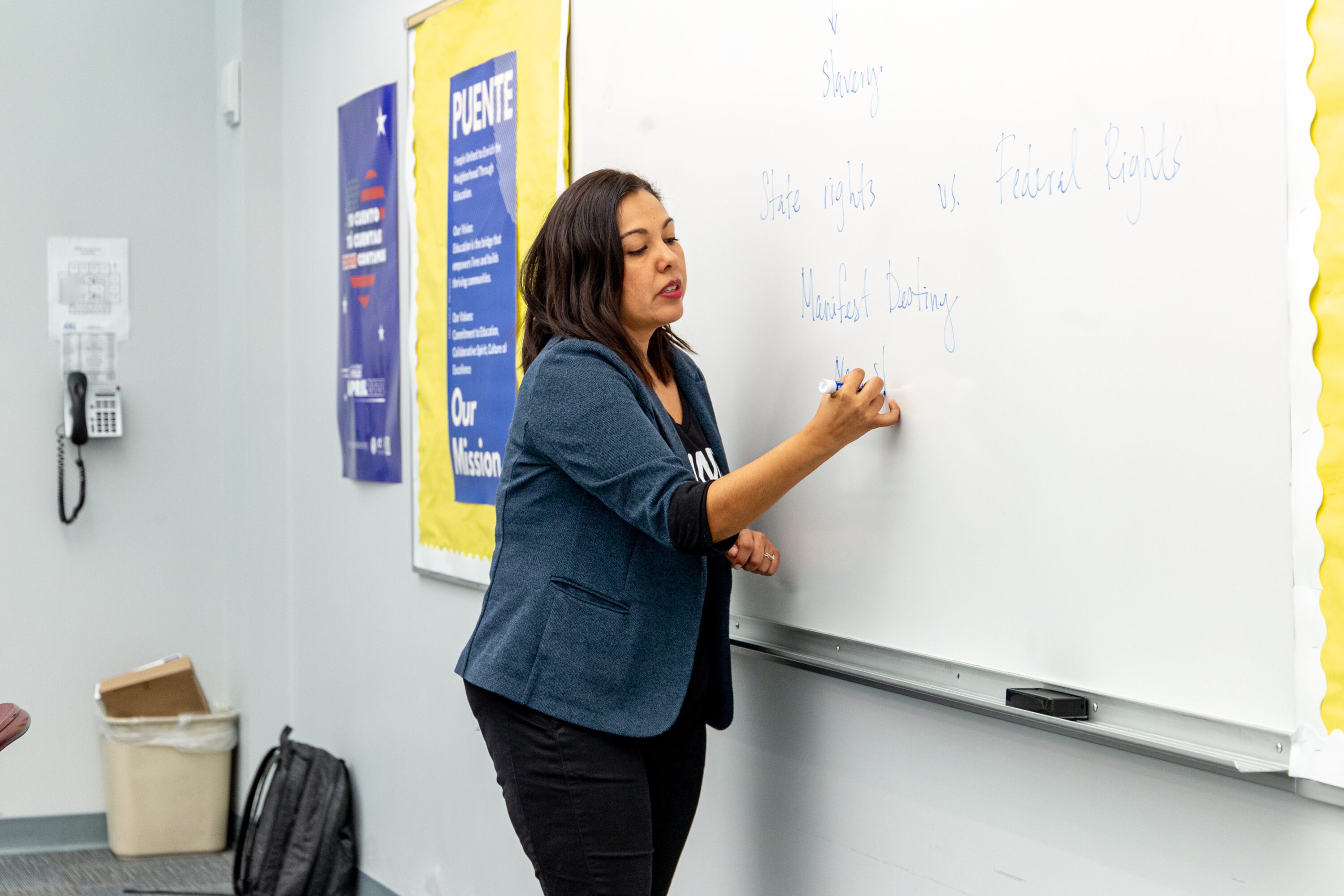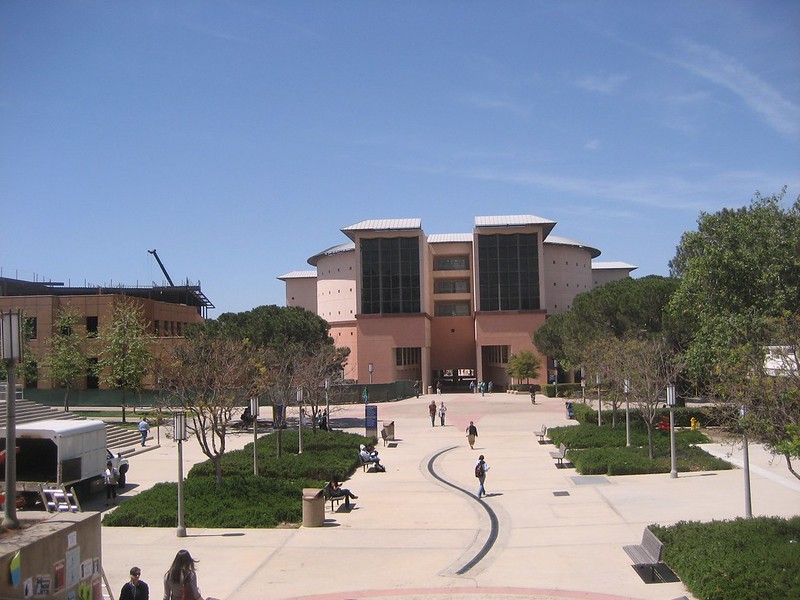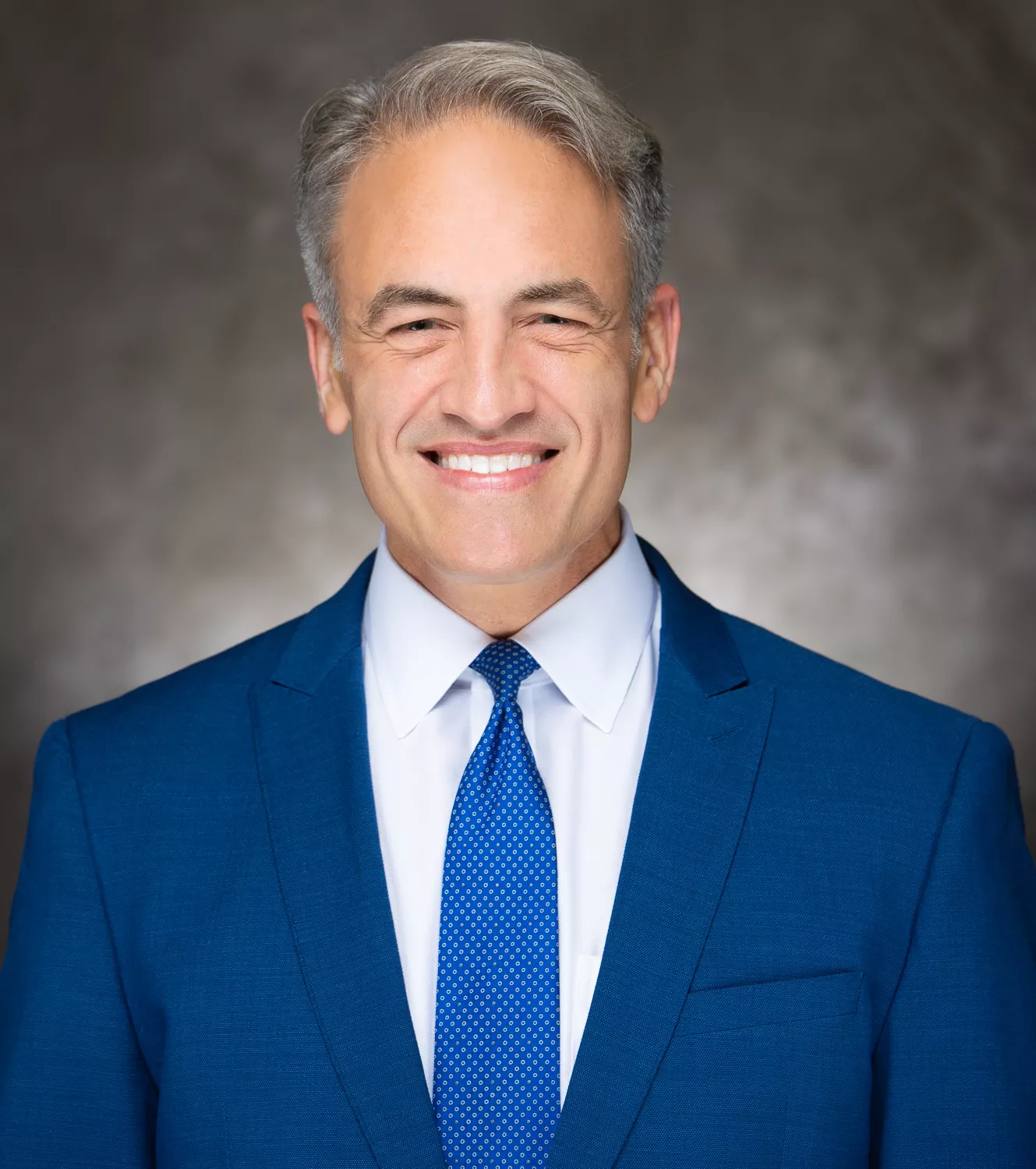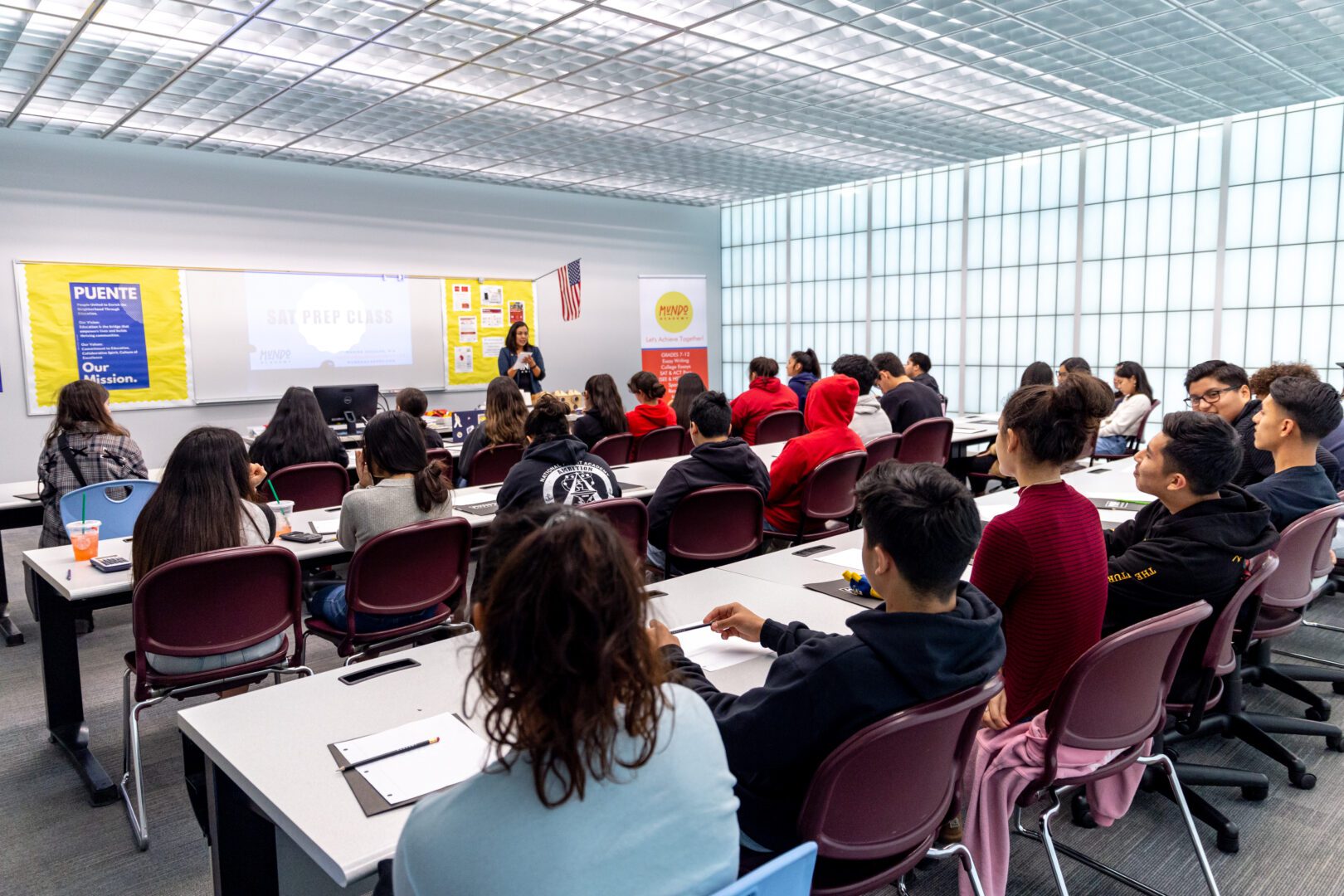
Marina Grijalva was the first in her family to go to a four-year university. She believes that the privilege opened doors for her, so she is striving to afford underrepresented minorities the same opportunity through her tutoring company — Pasadena’s own Mundo Academy.
The Road to Education
The youngest of five siblings, Grijalva was born and raised in Calexico, CA, a small town on the US-Mexico border. Her father was originally from Sonora and her mother hailed from Sinaloa but they met in Mexicali where their respective families relocated. Her grandparents moved to Mexicali for agricultural work; at the time, there was a program for Mexican immigrants to come and work as field laborers.
Education was an important aspect in her upbringing, but going to college was not instilled in her. Although her mother only reached third grade and her father seventh grade, Grijalva recalls her mother telling her she needed to get an education so that she wouldn’t need to depend on anybody. “That advice was really them saying I could live a different life from what they had – that I could have more opportunities. But a four-year college degree wasn’t something they were pushing me towards. My knowledge about a college education was based on what I had seen on TV, or read about, or learned of in school. I was part of different outreach programs for youths, especially for children of field laborers. That’s how I first started hearing about college and how I essentially grasped that’s how I could get ahead and find a different way of life.”
Though Grijalva was the first in her family to have attended and graduated from a four-year college, all of her siblings paved their own paths to their careers. One of her brothers went to community college, for instance, while another went to a vocational school for architecture and is now an architect. “In speaking to them now,” she muses, “they feel I had more opportunities because I ended up going to college, but they didn’t know anything about it when they were my age.” Her four brothers and sisters are much older; she was still in middle school when her eldest brother graduated high school.
Grijalva attributes her acquaintance with college opportunities to the various programs at her high school: “For three years, I did six-week summer programs at university. The most impactful were the ones at Harvey Mudd and UCLA because all the counselors were students from Claremont Colleges and students of color. They tried to learn more about me – asked me what I wanted to do and where I wanted to go; they also told me what scholarships I could get. I applied to college on my own and got several acceptances; I chose to attend Pomona College.
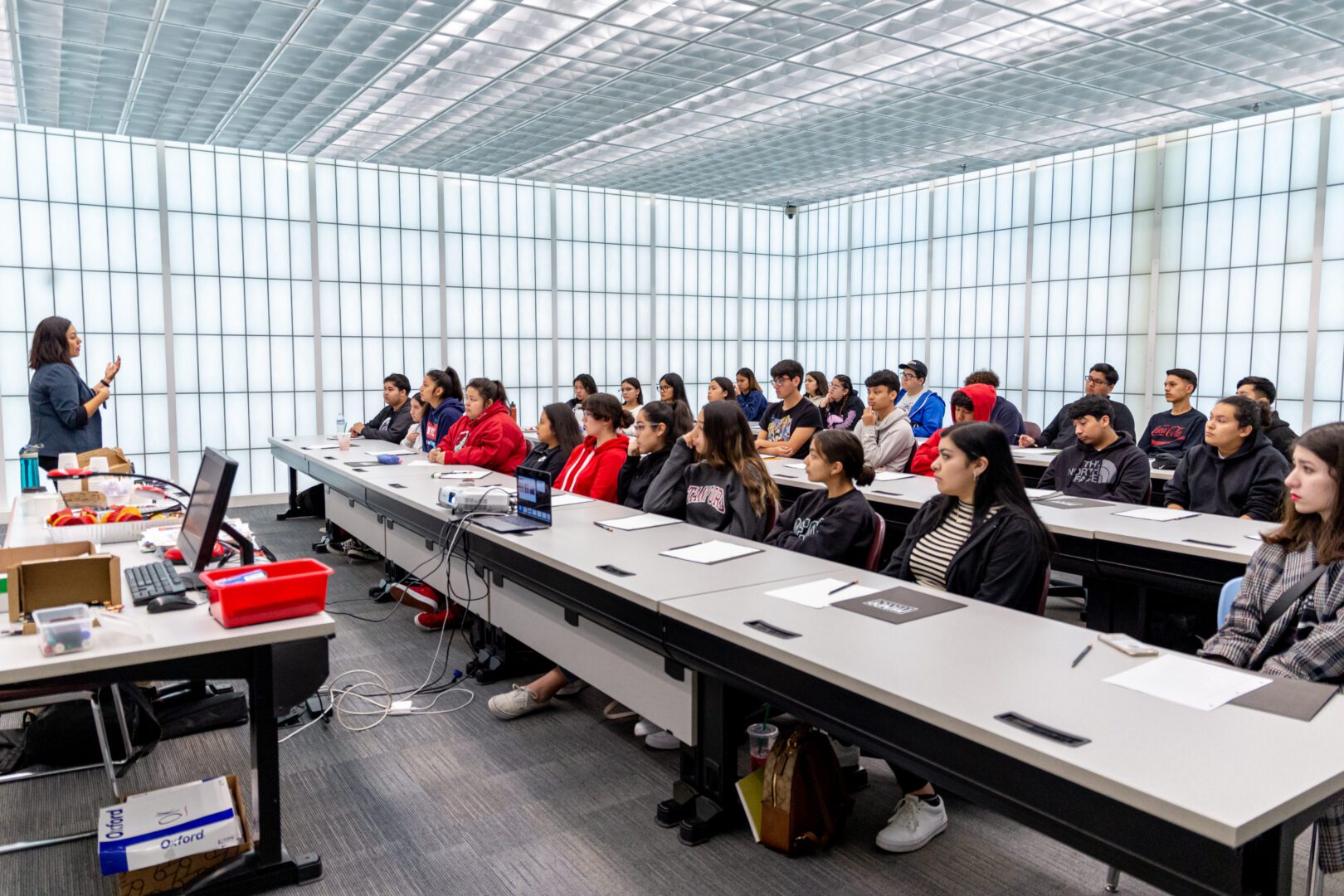
“When I told my parents, they asked why I wanted to move away when my family was in Mexicali; that I could stay and go to community college, get married, and have kids. But I told them it was how I could find better jobs and opportunities. Besides, I had a full ride scholarship so, in a way, they didn’t have a choice but to let me go. They eventually had a change of heart after they saw the school and understood what my getting a college degree meant for them.”
In college, Grijava ended up double majoring in math and romance languages, but that wasn’t intentional. Like most 18-year-olds, she didn’t really know what she wanted to pursue. While math had always been a class in which she excelled, she didn’t plan to major in it. She tried international relations, microeconomics, pre-med, and chemistry before she realized that her love truly lay with math – and Spanish.
Grijalva already spoke Spanish so when several students at the school encouraged her to take a class with a Spanish professor, Susanna Chavez Silverman, she thought it was a good idea. She says, “She introduced me to the world of Latin American literature and different ways of thinking about culture. I keep in touch with her to this day.”
Serendipitously, these two subjects helped Grijalva launch her career as a teacher. Shortly after she graduated, a friend who taught at a Catholic school mentioned to Grijalva that the school’s geometry teacher had resigned and they also had a part-time Spanish teacher position open. She said, “I could teach both of those!” Aside from one school in Texas where she only taught math, she taught both subjects at almost every single school where she worked.
From Teaching to Tutoring
Many tutoring services I’ve heard of were founded by Asians and target students who are hoping to get into the most prestigious colleges. They hire teachers from the Ivies and name their service ‘Premier’ or ‘Ivy Max,’ giving the impression that students who study with them will earn admission to an Ivy League school.
Grijalva’s tutoring business went through a few iterations. Her first company, which she established back in 2008, was called ‘My New Tutor.’ She rationalizes, “I figured that would be an interesting way for a student to respond when someone asked ‘Why are you doing so well?’ ‘Oh, because I have a new tutor!’”
Then in 2013, she partnered with a college counselor and they changed their name to MYNT, an abbreviation of ‘My New Tutor.’ Grijava confirms, “Our student base was what you described: the college-bound, competitive, and Ivy League-pursuing student. However, the tutoring service had always been my area of expertise, and for that, we had students with learning challenges or having difficulties in school. The students we had in the tutoring side of our business were not always the same as those we got for the college counseling side.”
Grijalva eventually ended up selling her interest in MYNT and starting the Pasadena-based Mundo Academy in 2018. She explains, “I have access to information, and in the same way that information changed my life, we can use information to change other students’ lives. What I learned being in the college counseling business made me want to do something that can expand everybody’s world. Thus, the name Mundo came to mind. I also wanted it to be a Spanish word…I wanted people who see and hear about our service to feel it’s inclusive.”
Mundo Academy is built on inclusivity and respect for all. Grijalva, who identifies as a gay person, discloses, “My sexual orientation was something I kept private for many years because I wasn’t sure how parents would react to a gay person teaching their children. However, I came to the realization that representation matters; and if it meant losing some business, I was okay with that as long as my experience helped a young person see that they, too, can succeed.”
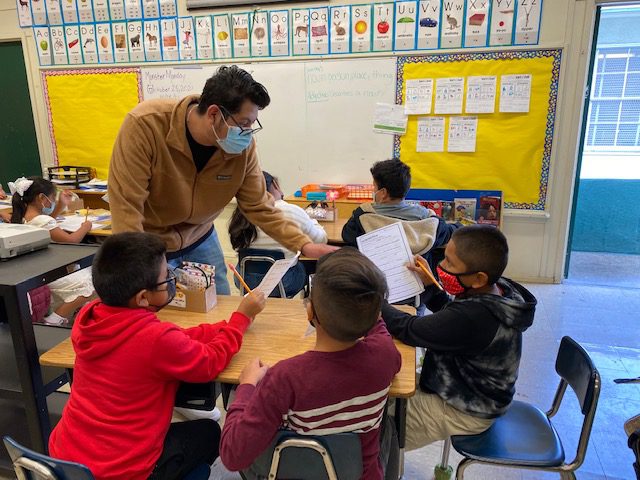
To advance that goal, Mundo Academy’s services fill diverse requirements. It offers private tutoring for high achieving students wanting to improve their grades from B’s to A’s; to students with learning challenges; to students in the process of applying to selective high schools and colleges who desire test preparation for the AP, ISEE/HSPT, or ACT/SAT; and everything in between. The other aspect of the business involves partnering with nonprofits and school districts to provide teaching to those with academic difficulties, and those with limited or no resources.
In a podcast from early 2021, Grijalva alluded to a mission to help underprivileged and underrepresented minorities as the impetus for establishing Mundo Academy. I inquire how Grijalva balances the seemingly extreme ends of the learning scale and the challenges distinct to each.
“I think that all students, at the core, want to achieve; so students in both components have similar needs,” Grijalva sagely responds. “I use my education and experience to create an educational environment in which they feel comfortable, and where they learn how to think and how to approach information and problems, read through material and find an academic voice.”
Mundo’s main nonprofit partner is PUENTE Learning Center in Boyle Heights, where they held multiple SAT prep classes online and in-person before the pandemic. They have also affiliated with Barrio Action, a center in El Sereno. Pre-pandemic, Mundo Academy collaborated with the Football United League, where they held college workshops and camps.
Grijalva recounts the genesis of her nonprofit partnerships: “When I established Mundo Academy, I tried to organize classes in different communities by myself. But even when the classes were free, either no one would come or there would be only two or three students. I knew it was a long shot, especially because trust is such a big component of everything we do, and I was going to communities that didn’t know me or my company.
“That led me to reach out to non-profits since they have the student population. I researched which organizations already used college admissions preparation as part of their offering. I found out they don’t necessarily have experienced SAT tutors – they tend to just buy an SAT book and have someone work with that. But I have college counseling and SAT prep experience, so I approached them and started holding free SAT boot camps. At first, we had about ten students, but for the last few boot camps we had about 40 students. We would fill the classrooms.”
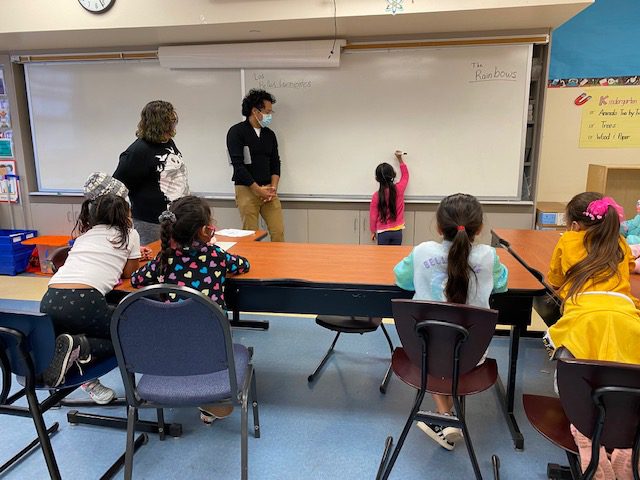
The academic enrichment program they currently offer several LAUSD schools has been one that has taken off since the pandemic, and Grijalva mentions that she also expects two other alliances, starting soon. Their project with LAUSD has brought a new element to their relationship with students and their families.
Grijalva observes, “While Mundo develops the programming, it’s the school who’s bringing us in – it’s much less parent-centric. Whereas I feel with our private tutoring students, the parents are much more involved – they’re the ones hiring us, and the parent propels most of what happens.
“In our work with LAUSD, although we try to engage parents as much as possible – we call them to introduce ourselves and tell them about the service we’re providing – they leave a lot up to us. They are receiving the service as opposed to pushing for them.
“I think, for the most part, that’s because they don’t understand the educational system. One of the big groups we work with is long-term English learners (LTEL). When a parent enrolls their child into the school district, they’re asked if they speak another language at home. If the parent says ‘yes,’ then the student gets flagged as an LTEL and there’s a language exam that they have to pass to get out of this classification. Many students aren’t able to do that so they stay within this classification, sometimes all the way into high school. This LTEL tag affects them adversely because they have to take extra ESL classes in middle and high school, which could prevent them from fulfilling the A to G requirements, or qualifying for AP classes, or enrolling in electives to explore other academic subjects.”
“A lot of parents and students alike don’t understand the importance of these exams or these requirements in order to reclassify,” Grijalva says further. “That’s one of the challenges we face – trying to inform both parents and students about what’s at stake. The goal is not just to have phone calls with parents but to also do workshops and more extensive outreach, to educate them even more on how they can be supporting their child. But because of Covid, that hasn’t been possible. We’re communicating and working with parents mostly over Zoom and there’s a technological divide: they either don’t have access to Zoom or the computer to log into to help their child.”
Future Trajectory
The pandemic brought to light how essential classroom teaching is to student learning. For the last two years, we’ve been reading and hearing about learning loss. Some students who were earning A’s in their courses were suddenly getting behind or even flunking. Then, on Jan. 7, the California Department of Education released the results of a study that confirmed what we already knew: students experienced major achievement gaps and significant setbacks during the 2020-2021 school year with mostly remote learning.
For some LAUSD schools, Mundo Academy is the solution to help close those achievement gaps. Grijalva says, “The schools realize that they need small group tutoring in order to help students overcome some of those barriers. And as hard as teachers work in order to help them learn, they’re just not able to cover as much material online as they would have in a traditional school setting.”
As many schools’ focus is mostly on language learning loss, Grijalva explains, “We look at the data from the test teachers administered at the beginning of the school year to figure out students’ reading level. We’re then able to target those by using phonics lessons and different interactive activities to help students not only learn how to read but develop a love for reading on their own as well.”
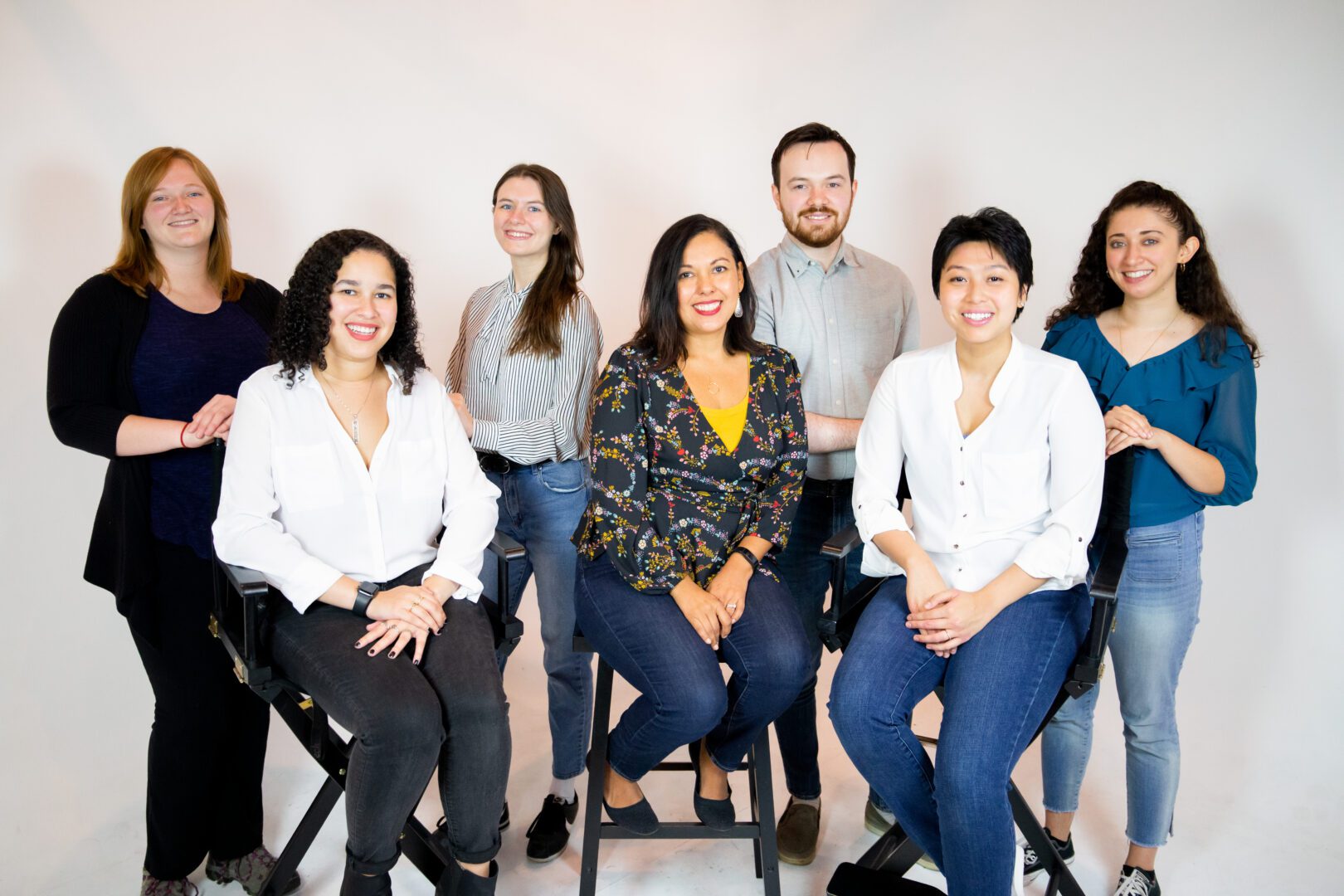
Asked where she envisions herself and Mundo Academy ten years from now, Grijalva answers, “I see ourselves doing two different things: providing at-large programming for LTEL throughout LAUSD and creating vertical programs. Starting with elementary school children, helping them reclassify; in middle school, teaching study skills and about college, and helping set themselves up for success in high school; and in high school, helping them through college admissions, covering the A-G requirements and volunteering.
“We’re also seeking to produce an English language development curriculum for students who are called ‘newcomers’ – children who have only been in the country for one or two years – they could be at any grade level, from elementary to high school. Right now, we’re working mostly with Latino students, but there are many immigrants from Central America and other Asian countries like the Philippines, Vietnam, Cambodia, and Laos residing in L.A. As we expand throughout the district, we’d like to offer our services to those populations as well. We hope to eventually take that curriculum nationwide.”
“What sets us apart as a tutoring company is that even as our student base grows, we have a focus on each individual, in creating a nurturing environment for that one student,” emphasizes Grijalva. “When I hire tutors, I look for qualities that show they will not only be proficient in what they’re teaching their student, but will also take a personal approach, learn more about each child, and help the student advocate for themselves so they’re able to grow.
“Our goal is never for students to need us for the rest of their academic career. If they do, we’re happy to help and provide support, but the intent is for the student to become confident – learn how to ask questions and think about the material they’re facing, how to manage their time, how to develop their individual study skills, and then set themselves up for success. It’s almost like a therapist saying, ‘You’re okay now, you don’t need me anymore.’”
Especially during this pandemic, Grijalva and Mundo Academy are guiding students towards a place of confidence in their learning abilities so they can come out the other side stronger individuals who faced academic challenges and prevailed.

